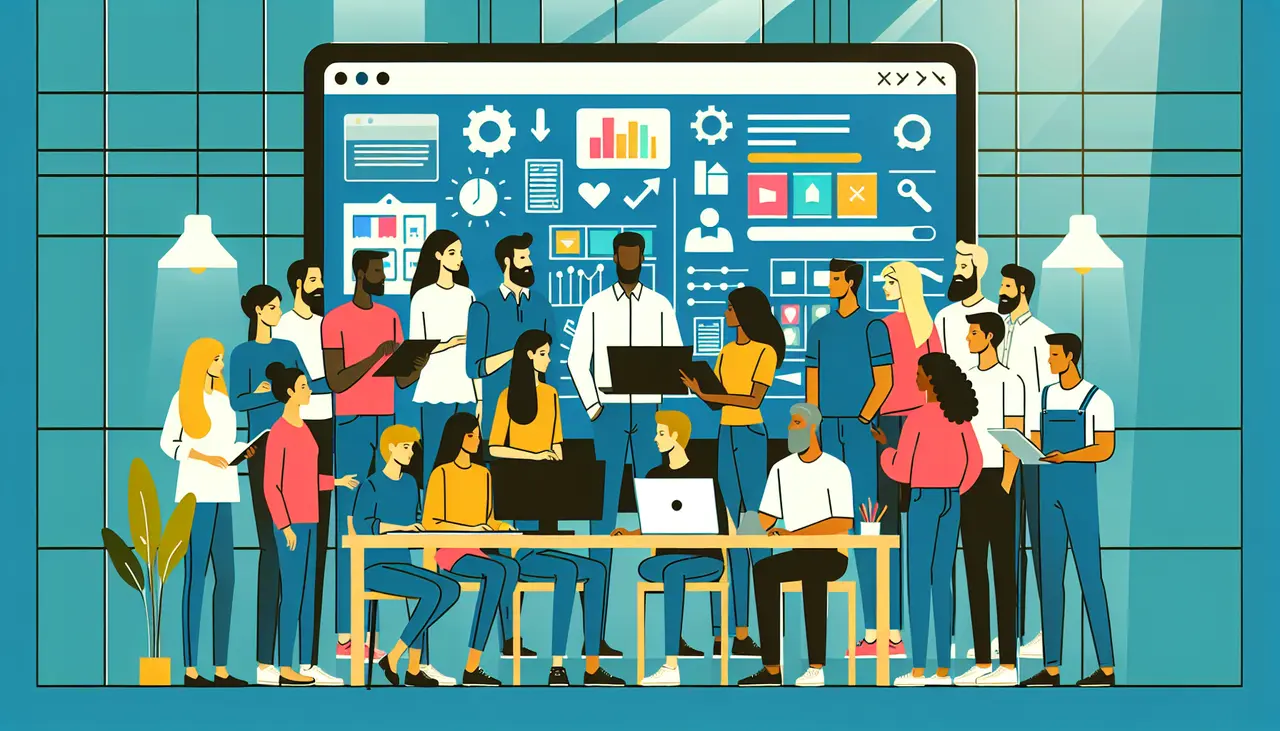10 Key Features Every Successful Application Development Firm Should Offer
In today’s fast-paced digital world, application development firms play a crucial role in helping businesses thrive. The right firm can transform your ideas into innovative, user-friendly applications that drive success. But what makes an application development firm stand out? Let’s explore the essential features that can make a significant impact on the success of your projects.
1. Empathy Towards Client Needs
A successful application development firm places a strong emphasis on understanding and empathizing with the specific needs of their clients. This ensures the final product aligns perfectly with the business objectives and user requirements.
Client-centric approaches not only build trust but also foster long-term partnerships. By actively listening to clients and prioritizing their goals, a firm can offer personalized solutions that resonate deeply with end-users. This client-first philosophy is often a catalyst for innovation, enabling firms to develop applications that are not just functional but also intuitively meet the users’ needs. Companies that master this approach tend to cultivate lasting relationships, ultimately contributing to mutual growth and success.
2. Agile Development Approach
Incorporating agile methodologies allows for flexibility and quick adaptation to changes. This iterative approach facilitates ongoing collaboration and continuous improvement throughout the development process.
Agile development is more than just a buzzword; it’s a mindset that prioritizes collaboration, adaptability, and customer satisfaction. Unlike traditional linear development models, agile encourages incremental progress, enabling teams to respond swiftly to feedback and market shifts. This flexibility is essential in today’s fast-moving tech landscape, as it allows developers to refine their processes while minimizing risks. It also promotes a culture of openness where team members are empowered to make decisions, ultimately resulting in more responsive and efficient project outcomes.
3. Comprehensive Technical Expertise
A diverse skill set and deep technical knowledge in various programming languages and frameworks enable firms to tackle projects of any complexity and tailor solutions to different business challenges.
Companies with a broad range of expertise are better positioned to offer cutting-edge solutions tailored to each client’s unique needs. By continually investing in learning and skills development, these firms stay ahead of industry trends and equip themselves to innovate. Whether it’s leveraging artificial intelligence to enhance user experience or adopting new development frameworks, the right expertise can make a significant difference in the quality and effectiveness of the applications delivered.
4. User-Centric Design Focus
Prioritizing user experience and intuitive design is crucial for any application. A firm that excels at creating engaging, easy-to-use interfaces will ensure higher user satisfaction and adoption rates.
Consider the role of design thinking in crafting interfaces that truly resonate with users. By placing users at the heart of the design process, developers can create applications that are not only aesthetically pleasing but also highly functional and easy to navigate. Such focus leads to greater adoption rates and loyalty, as users are more likely to engage with and continue using applications that meet their needs effortlessly.
5. Robust Security Measures
With cyber threats on the rise, protecting applications and user data is paramount. Successful firms implement strong security protocols to safeguard against vulnerabilities and breaches.
An application’s security features can make or break its reputation—hence the emphasis on implementing multi-layered security measures like encryption, regular audits, and software updates. Staying informed about the latest cybersecurity trends helps firms anticipate vulnerabilities and proactively protect their systems. Additionally, training development teams in best practices and compliance is vital to maintaining comprehensive protection against ever-evolving threats.
6. Scalability and Future-Readiness
Creating applications that can grow alongside your business is vital. Firms that design with scalability in mind ensure your applications remain efficient and relevant over time.
Scalability is not just about handling an increase in users; it’s also about future-proofing your application against technological advancements. By adopting flexible architectures such as cloud computing, firms can offer solutions that adapt to growing demands seamlessly. This approach not only boosts user experience but also extends the lifecycle of your applications, aligning them with your long-term business strategies.
7. Transparent Communication
Clear and open communication channels foster strong relationships between the client and the development team. This transparency helps in setting realistic expectations and ensuring project alignment at every stage.
Effective communication is the cornerstone of any successful partnership. Encouraging open dialogue and frequent updates not only builds trust but also enables teams to make informed decisions rapidly. By implementing tools that facilitate real-time communication, firms can keep stakeholders in the loop and promptly address any concerns, thus aligning all parties with the project’s objectives.
8. Continuous Testing and Quality Assurance
Regular testing and thorough quality checks help identify potential issues early, ensuring the final product is polished, bug-free, and performs seamlessly.
Quality assurance is an ongoing process rather than a final step. Incorporating automated testing tools enables firms to continuously validate application performance and maintain high standards. As technology evolves, staying updated with the latest quality assurance techniques is crucial for delivering reliable and high-performing software.
9. Ongoing Support and Maintenance
Post-launch support is crucial for addressing any challenges that may arise after deployment. A reliable firm offers ongoing maintenance and updates to keep your applications running smoothly.
Applications require regular updates to address emerging bugs and remain compatible with new technology standards. Reliable support teams not only resolve issues swiftly but also proactively provide updates that enhance features and improve user experience. This dedicated service ensures that clients reap the maximum benefits from their applications over the long term, minimizing downtime and optimizing performance.
10. Innovative Problem Solving
Creative thinking and a solution-oriented mindset empower firms to tackle unique challenges with innovative solutions. This adaptability is a key differentiator in the ever-evolving tech landscape.
Solving complex problems often requires thinking outside the box, which is where innovation comes into play. Encouraging a culture of innovation means that developers can leverage cutting-edge technologies and agile methodologies to craft bespoke solutions. This adaptability allows firms to turn challenges into opportunities, keeping them ahead of the curve and ensuring the delivery of competitive, forward-thinking applications.






Leave a Reply
Want to join the discussion?Feel free to contribute!